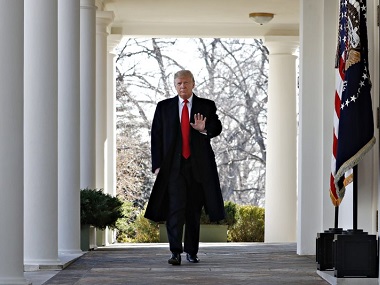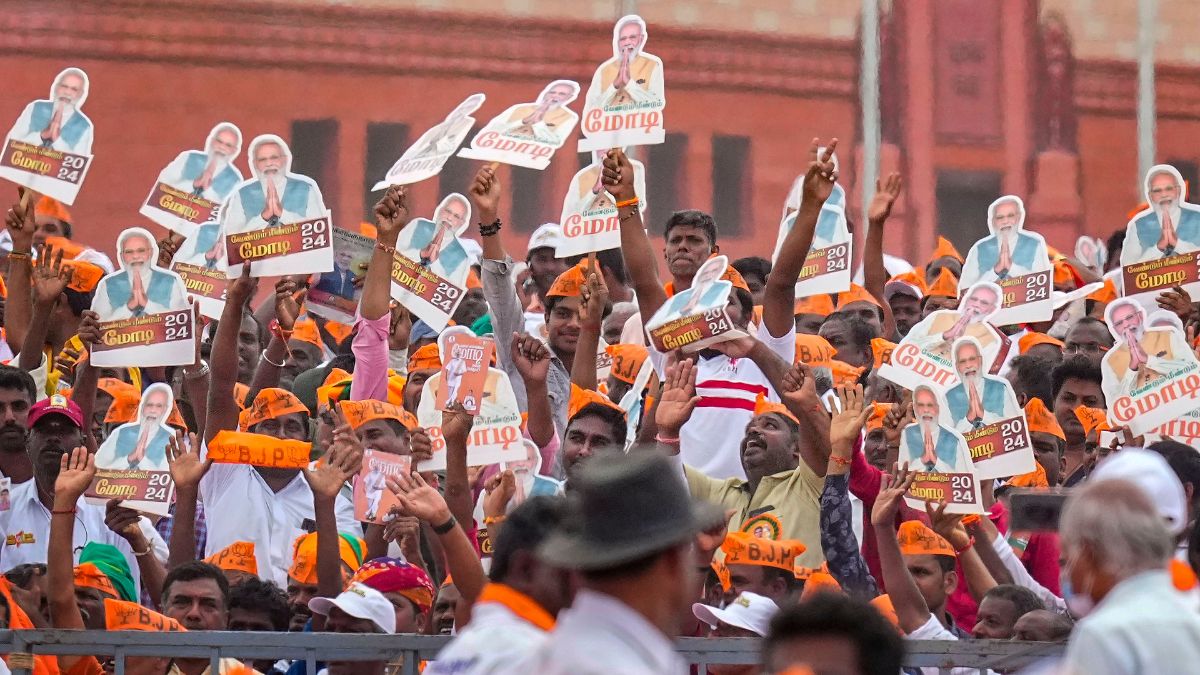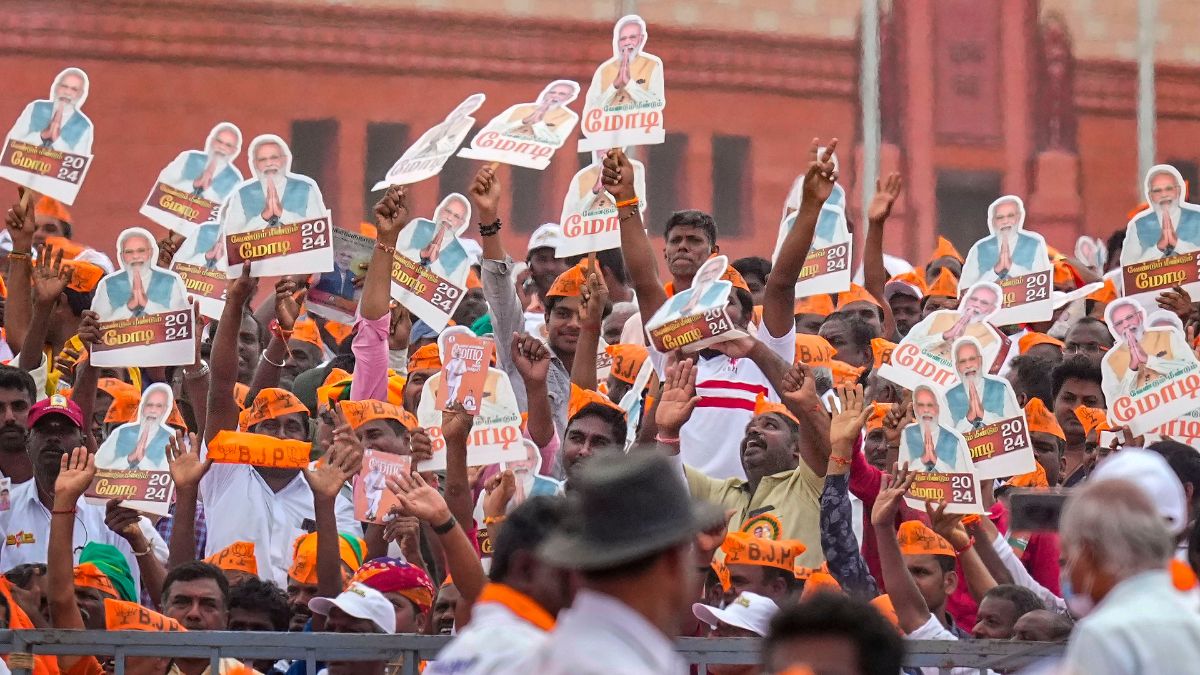It’s official. The Donald Trump administration, via the US Department of Homeland Security (DHS) has announced a final rule for H1B visa applicants that recalibrates educational qualification requirements of who (all) can be counted towards the regular, yearly stream of 65,000 work visas in a move that will filter out more bachelor’s degree holders and raise the probability of more US advanced degree holders filling the first wave of total available slots. Immigration analysts say this will eventually squeeze the grand total of incoming batches of H1B workers. The rule goes into effect 1 April and will be published in the US federal register Thursday.
In the present H1B rubric, there are 65,000 visas available, plus an additional 20,000 for those with advanced degrees from a U.S. institution. This year’s lottery which will likely happen in April will be run across all H-1B petitions, followed by a lottery for remaining slots for advanced-degree holders. Typically, the USCIS has run the lottery for the advanced-degree holders first. The change is estimated to increase the number of advanced-degree holders selected in the lottery by 16 percent, or 5,340 workers each year, the USCIS said.
“Changing the order in which USCIS counts these separate allocations will likely increase the number of beneficiaries with a master’s or higher degree from a U.S. institution of higher education to be selected for further processing under the H-1B allocations. USCIS will proceed with implementing this change to the cap allocation selection process for the FY 2020 cap season (beginning on April 1, 2019), notwithstanding the delayed implementation of the H-1B registration requirement”, USCIS says the very first page of the final rule.
The H1B visa program allows US employers to temporarily hire foreign workers in a “speciality occupation, services related to a Department of Defense (DOD) cooperative research and development project or coproduction project, or services of distinguished merit and ability in the field of fashion modeling.”
This latest rule means stricter entry criteria at the very first stage along with the new normal of high difficulty level for visa extensions.
US Citizenship and Immigration Services (USCIS) chief L. Francis Cissna claims “these simple and smart changes are a positive benefit for employers, the foreign workers they seek to employ, and the agency’s adjudicators, helping the H-1B visa program work better”.
“The new registration system, once implemented, will lower overall costs for employers and increase government efficiency. We are also furthering President Trump’s goal of improving our immigration system by making a simple adjustment to the H-1B cap selection process. As a result, U.S. employers seeking to employ foreign workers with a U.S. master’s or higher degree will have a greater chance of selection in the H-1B lottery in years of excess demand for new H-1B visas.”
US President Donald Trump recently referred to the coming changes, framing it as a better deal for H1B workers.
In a tweet, Trump said those who hold the temporary H1-B visas can “rest assured” because changes were coming that will bring “both simplicity and certainty to your stay, including a potential path to citizenship.”
During his campaign, Trump gave conflicting statements about visas for high-skilled immigrants. At some points, he maligned current programs, saying they took jobs from Americans. At others, he stressed the need for more high-skilled workers and bemoaned the fact that foreigners who attend Ivy League colleges can’t stay in the U.S. and create jobs.
He ordered a review of the visa program. The tech industry insists the program is vital. Proponents say it encourages students to stay in the U.S. after getting their degrees in high-tech specialties. The pushback to the H1B visa program has been particularly intense in the Trump era.
DHS says the US Citizenship and Immigration Services (USCIS) struggles with overload from the random lottery process. USCIS has received well over 100,000 cap-subject petitions within the first few days of the H-1B filing period for the past five fiscal years. USCIS received 198,460 petitions in 2017, 236,444 in 2016, 232,973 in 2015, 172,581 in 2014, 124,130 in 2013 - all within the first five business days of the H-1B filing period.
Here is the DHS explanation of how things currently work: “…In years when a sufficient number of petitions needed to reach the regular cap or advanced degree exemption are received during the first five business days that H-1B cap- subject petitions may be filed, USCIS selects qualifying petitions towards the H-1B advanced degree exemption first. H-1B cap-subject petitions eligible for the advanced degree exemption, but not selected for the advanced degree exemption, are then included in the H-1B regular cap random selection process. Under the proposed amendments, USCIS would select all registrations toward the projected number of petitions needed to meet the regular cap first until the regular cap is reached. Once the projected number of registrations needed to meet the regular cap is reached, USCIS would then select registrations that are eligible for the advanced degree exemption until the projected number of registrations needed to meet the advanced degree exemption is reached. USCIS is proposing to count all registrations toward the H-1B regular cap projections first, even in years when a random selection process at the end of the initial registration period may not be necessary. In such years, USCIS would continue to count all registrations toward the H-1B regular cap projections until such time as the projected number of registrations needed to reach the H-1B regular cap is met.”


)




)
)
)
)
)
)
)
)